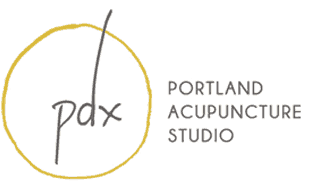There are a lot of reasons someone might wait until their 40s to start their family: Not wanting to interrupt your career, finding the right partner, resolving health issues first. Let’s face it, for most people, it’s harder to get pregnant in your 40s than it would have been in your 20s. But starting a family later has some benefits, too, like being more financially stable and emotionally mature.
6 Ways to Boost Fertility in Your 40s
Here are six things you can do to make the most of what you’ve got and help you increase your fertility in your 40s:
1. Lifestyle Changes
You’ve heard it a million times, but diet and exercise are some of the most powerful tools out there to improve your health. At this point, you probably have pretty well-ingrained dietary habits, but it’s never too late to make a positive change. Remember, small changes add up over time. Aim for a well-balanced whole-foods diet (think Mediterranean diet), with plenty of protein and fewer carbs. Find some form of moderate exercise that you enjoy and do it 3-4 times per week.
2. Stress
Over time, we get used to the amount of stress we’re under so that it feels normal. Many of our patients come in and say they don’t feel stressed, but if I ask about specifics, they start to realize just how much stress they have. The pace of today’s world, the layered expectations we live under, conflict with others (especially conflict you’re avoiding), our environmental toxic load, challenges at work, all count as “stress.” You probably have some tactics for handling stress when you’re feeling especially worked up, but you need to find ways to mitigate the daily stress we all experience, too. The stress that’s so familiar it doesn’t even register as stress. Consider a meditation app, a solid exercise program, counseling, laughter, fun, and acupuncture for stress relief.
3. Sleep
At this point in your life, you may have acclimated to getting by on less sleep. That’s the sort of low-grade stressor that’s best to correct before you try to get pregnant. Aim for eight hours of quality sleep every night. Work on your sleep hygiene to ensure a good night’s sleep. Sleep is crucial for overall health, allowing the body to repair itself, as well as improving immune function.
4. Environmental Changes
Eliminate endocrine-disrupting plastics from your home. This means get rid of BPA and pthalates from your kitchen. BPA and pthalates can be found in plastic food containers (think about all the take-out containers), plastic coffee to-go cups, plastic blender containers that have been used to make hot soup, anything plastic that has been heated up. Replace these containers with glass, stainless steel or silicone. Look for pots and pans (and waffle irons!) make from stainless steel, glass, ceramic, or cast iron. Start replacing your cleaning supplies and body care products (think soap, sunscreen, makeup) with non-toxic versions. Check the environmental working group’s Skin Deep database for more information on which body care products are least harmful.
5. The Right Care Team
Don’t go it alone. You do have a limited amount of time to get pregnant and we don’t know how much time is left on your individual clock. Some people need the support of a reproductive endocrinologist. Most everybody would benefit from working with an acupuncturist who specializes in reproductive health.
6. CoQ10: A Super-Supplement for Fertility
Coenzyme Q10 is a molecule found in every cell that your body uses to help generate energy. As we age, our CoQ10 levels drop, which makes processes that require a lot of energy (e.g., making eggs and sperm) more difficult.
When eggs divide for the first time in a process called meiosis, it takes a lot of energy to get the division right. When it doesn’t happen correctly, they may have too many or too few chromosomes, leading to genetic abnormalities. CoQ10 is also a powerful antioxidant, which means it helps clear out damage from oxidative stress.
Oxidative stress happens when the balance between reactive oxygen species and anti-oxidants is disturbed. When the balance is off, proteins, lipids, and nucleic acids can be damaged, which can impair our health. Oxidative stress is caused but such things as pollution, inflammation, stress, and cigarette smoke.
CoQ10 comes in two forms: an oxidized (ubiquinone) and a reduced form (ubiquinol). Your body changes one to the other, as needed, so it doesn’t matter as much which form you take. What matters more is that you absorb sufficient quantities of it.
Some preparations are easier to absorb than others. For example, the powder-filled capsules are difficult to absorb compared to oil-filled gels. Read about the manufacturing process for the supplement you’re considering to see if they provide absorption information.
Not only does the quality of eggs get better with more CoQ10, but research shows that people undergoing an egg retrieval cycle for IVF may require fewer medications, retrieve more eggs (and higher quality eggs), and have a higher chance at pregnancy and live birth.
There is some research indicating that CoQ10 can be useful during pregnancy, as well, in cases of recurrent miscarriage or a history of preeclampsia.
Research shows that CoQ10 can also help male-factor infertility by improving sperm motility, morphology, and concentration. The increase in cellular energy from CoQ10 helps with sperm count and motility. CoQ10 can help prevent oxidative damage to the DNA in sperm.
As with any supplement, there are some contraindications and side effects. Some people experience digestive disturbance with CoQ10, (like heartburn, nausea, diarrhea), poor sleep, headache, or fatigue. CoQ10 may lower high blood pressure, so caution is warranted in people with already low blood pressure. As always, consult with your physician before starting a new supplement.
Hopefully these ideas will help get you started on your journey to having a successful pregnancy in your 40s. If you have questions or need more customized support contact us.
Established patients can schedule online, patients who haven’t seen us at Kwan Yin Healing Center call (503) 701-8766, or email us to schedule your appointment.





